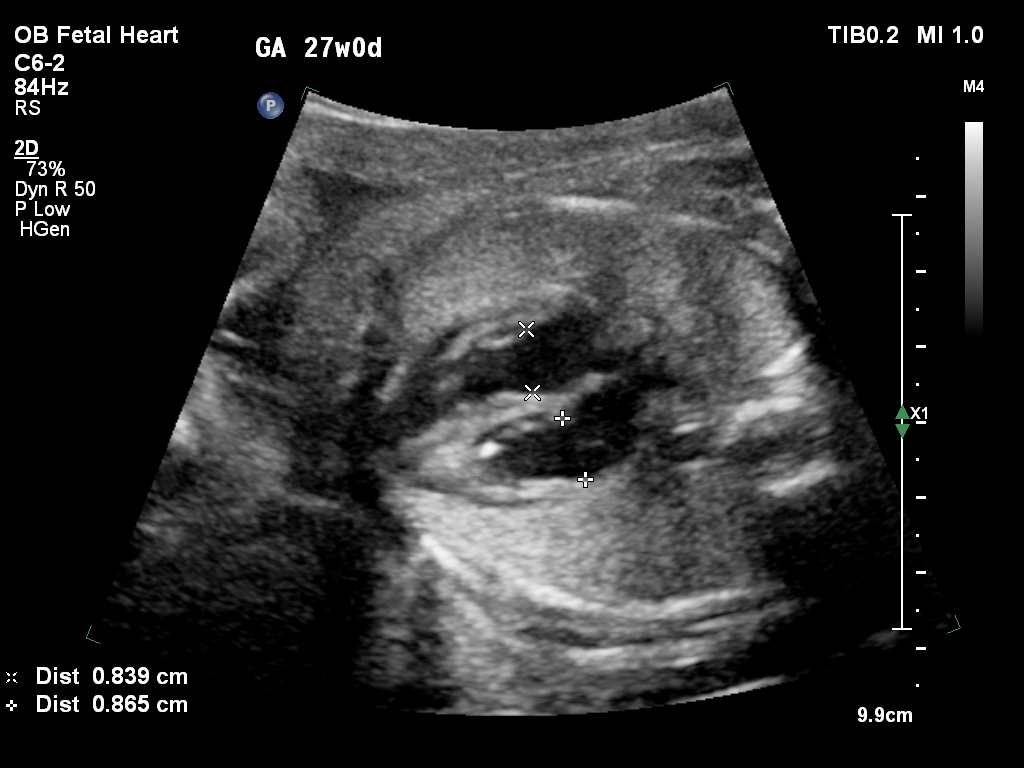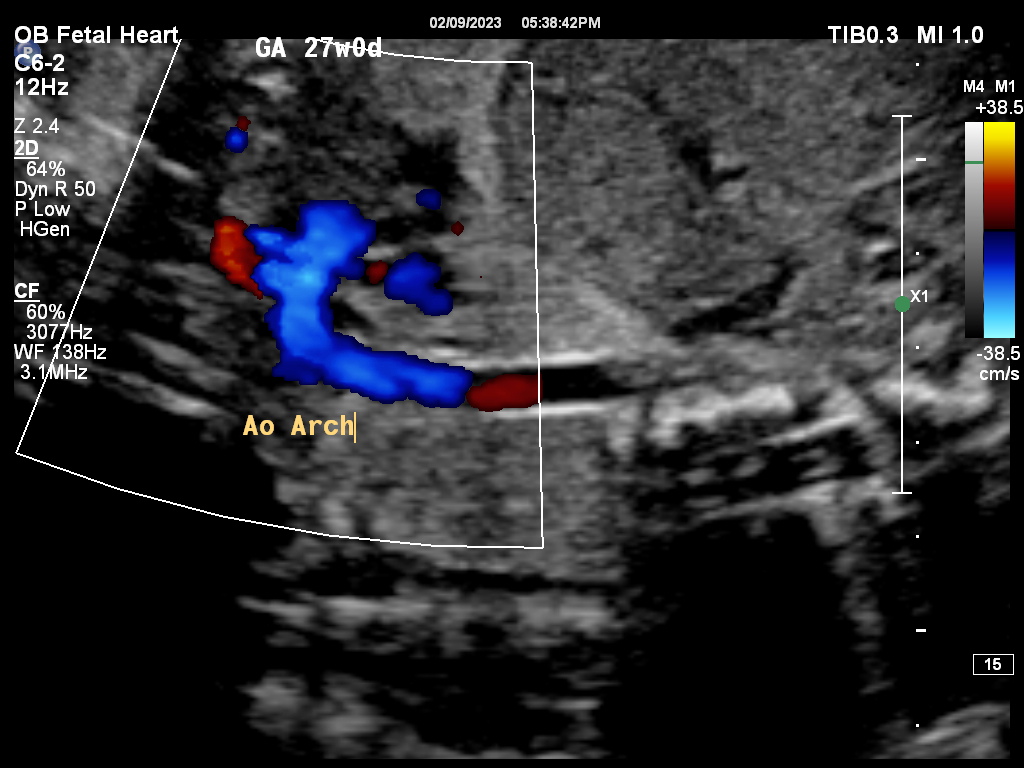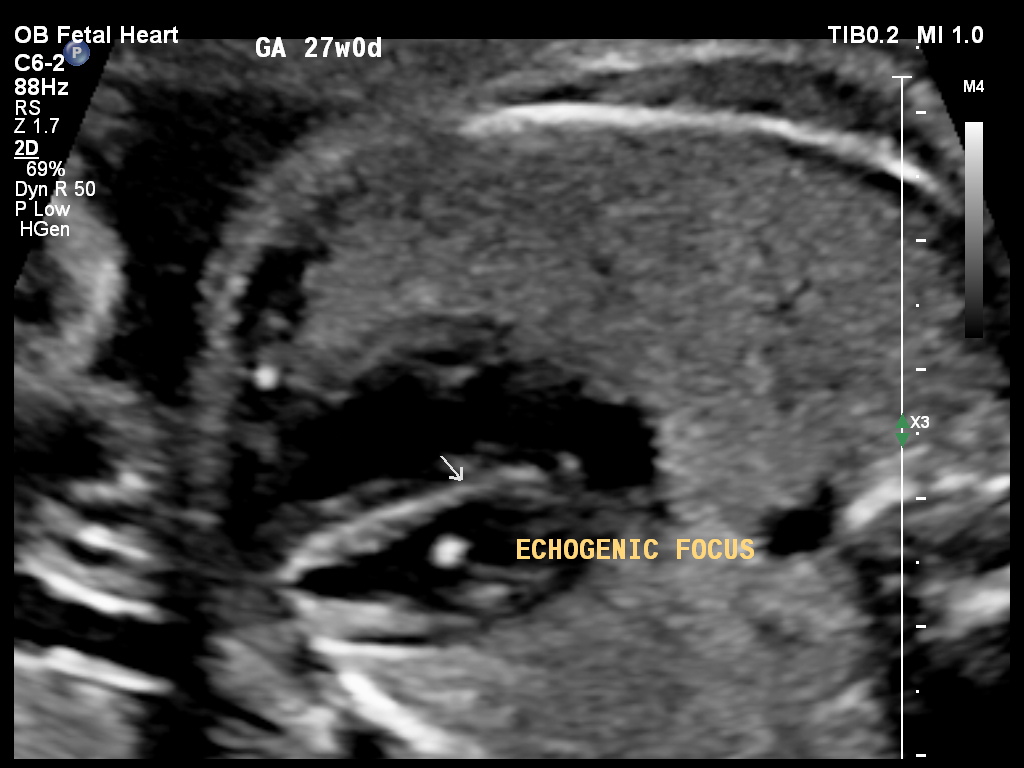Fetal Cardiology : Changing Paradigm
With technological advances and increasing experience and interest in fetal medicine, the multidisciplinary specialty of fetal cardiology has emerged based on close collaboration between perinatology ,fetal medicine and pediatric cardiology.
In the modern era, it is now expected that ultrasound will be able to diagnose structural heart disease with precise detail, and now the goal has become to understand the fetus as a patient, knowing that the fetal circulation is different from the postnatal circulation, that structural disease may progress in utero, and that cardiac function and stability of the cardiovascular system play an important role in fetal wellness.
Ultrasound provides a unique ability for noninvasive assessment of fetal heart and cardiovascular system including , the fetal cardiac anatomy , fetal cardiovascular physiology and fetal cardiac rhythm.
The incidence of congenital heart disease (CHD) has been estimated at 6 to 12 per 1000 live births; however, reasonable estimates in fetuses are less abundant. A study from Belgium reported an incidence of 8.3% in live and stillborn infants of ≥26 weeks of gestation without chromosome abnormalities. There is likely an even higher incidence in early gestation given spontaneous and elective pregnancy termination. CHDs are 8 times more common than Down syndrome for which there are currently well-established prenatal screening protocols.
Identifying at risk Fetus:
The majority of CHD occurs in the absence of clearly identifiable risk factors and ideally all pregnancies should be screened for heart defects in conjunction with the midgestation anomaly scan. In spite of above fact , the highest yield being in the setting of abnormal cardiac screening views in ultrasound in about 70%, followed by fetal chromosomal abnormalities in 50% and presence of other extracardiac abnormalities in 10 %. Poor maternal diabetes control and high HbA1C levels, maternal viral infections ( fetal cardiomyopathy) and maternal SLE ( fetal heart block)are some of the risk factors in mother responsible of fetal cardiac disorders. Some of the studies do mention about IVF pregnancy being a risk factor for fetus to have CHDs. American Heart association has come out with list of indications to advocate for fetal cardiac assessment which is supported by society of maternal and fetal medicine, discussing each indication is beyond the scope of this article.
Advantage of Fetal cardiac assessment
Prenatal diagnosis of CHD allows for evaluation of associated genetic or noncardiac lesions that can impact outcomes, better counseling about CHD management and preparation of the family for opting appropriate institution for optimal neonatal cardiac care. Fetal tachyarrhythmia can be treated by maternal administration of medications. Fetal cardiac interventions are offered at some of the fetal cardiac centers to alter the progression of anatomical severity of disease.
Given the expanded roles of the pediatric cardiologist and the maternal fetal specialist as collaborative caregivers for fetuses with structural heart disease, arrhythmias, or cardiovascular dysfunction, a new standard of care for the practice of the multidisciplinary, rapidly advancing, and highly specialized field of fetal cardiac medicine is needed.




